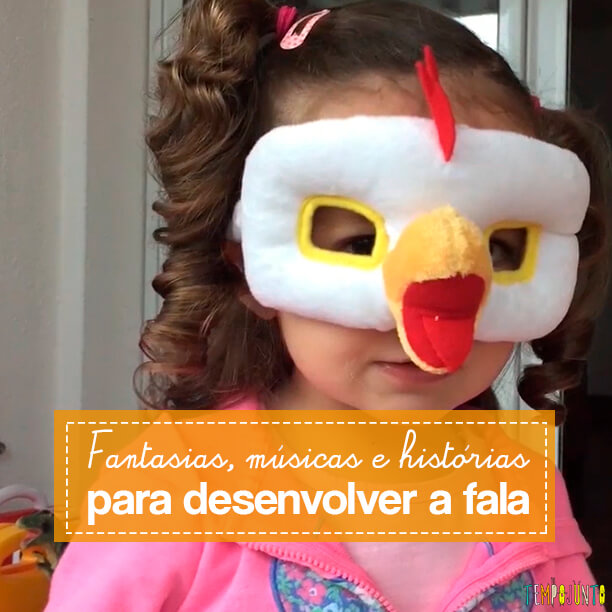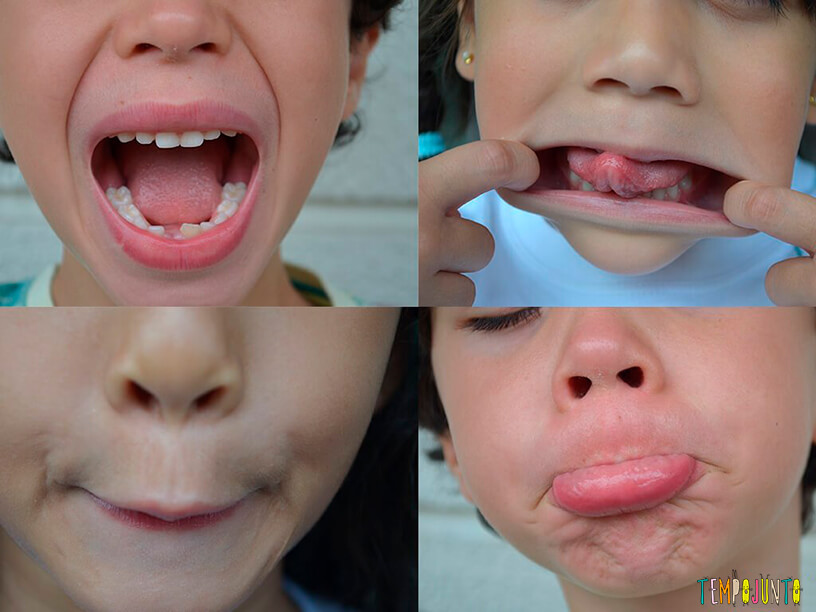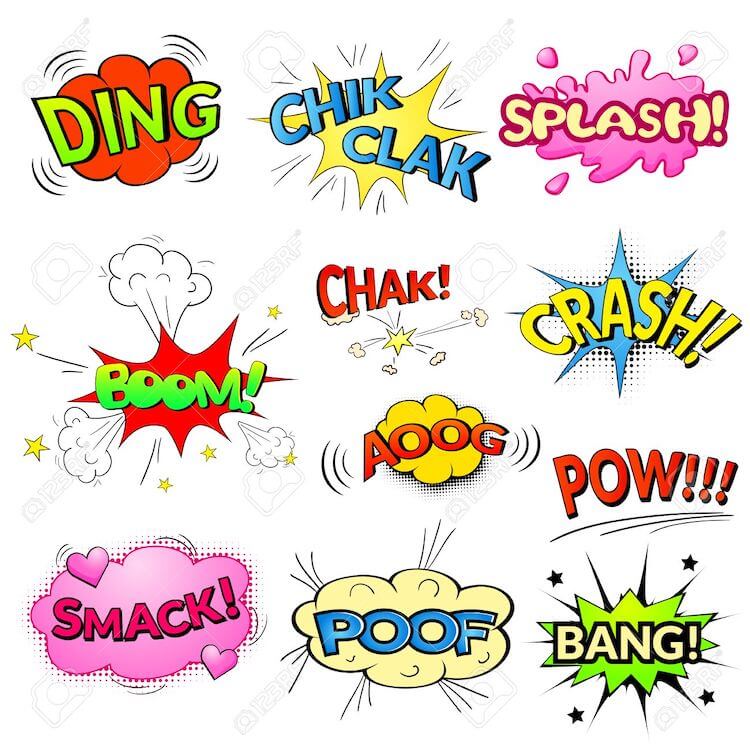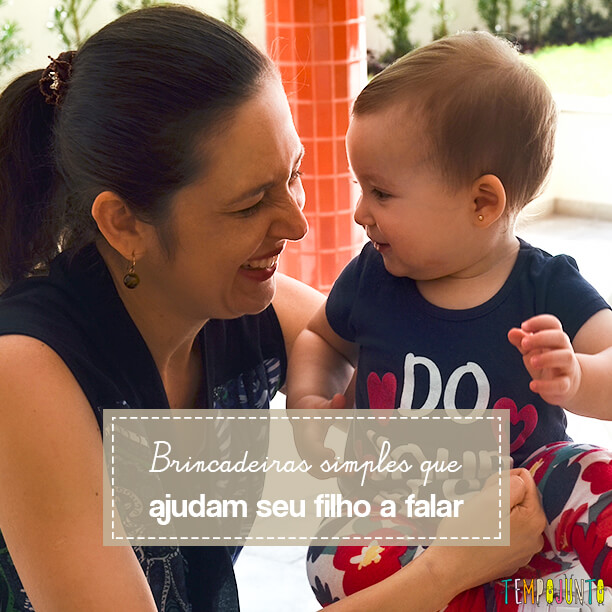
Talking is one of the things that most enchant fathers and mothers with their babies. Who can resist the first babble or the “mummy”, “daddy” or “ball”?
But before games that help your baby talk, it never hurts to remember that each baby has time to start talking. If you have any questions about this, the best person to help you is the pediatrician.
So you don’t have to compare it to the neighbor’s baby. And regardless of any game, the more you talk to your child – even a newborn – the better it will be for him to start talking.
Teaching your baby to speak happens naturally while playing
Another aspect to make you more relaxed there with your baby: this stimulus to speak happens naturally when you play and interact with your child. And interaction means “eye-to-eye”, that is, a person with the baby. This is not the case with TV or cell phone.
Then believe. Your child will not learn to speak by watching TV or the cell phone most of the time that he is awake. He will learn when someone talks to him.
But let’s play. I separated here the games that we enjoy for you to find more easily. But on the website there are other games related to talking, ok?
1 – Music and stories
It is simpler than it looks, but fundamental. Sing for and with your baby and get into the habit of telling stories without you yet. Here is a post with tips to start telling stories to the baby.

2 – Imitate difficult sounds
And how about playing making “PR”, “BR”, “LH” sounds among other more complex ones of our language, for the baby to repeat.
Almost like those singers’ exercises. It’s fun and babies love it!
So, I put the link to our video on the subject on YouTube up here, in case you prefer to watch it instead of reading it.
3 – Complete words
How about saying a word and letting your child complete? This simple game, which fits anywhere, and only needs a few minutes a day, is fun and helps your child discover new combinations of sounds.
New sounds bring new ways to help baby talk
4 – Stammer
Babbling is the baby’s first way of repeating a sound he heard and finding out if it makes sense for the adult.
Therefore, by babbling with and for him, you build a bridge of communication with your child. This bridge opens the way for other talking games.
5 – Make faces
Like any other activity in the body, talking requires our muscles to work. Whether the muscles are in the form of vocal cords, be it the muscles of the tongue and the face.
And making faces, playing with faces are this “baby’s face academy”, which will help in good diction when speaking.

6 – The talking bug
Another simple game that you play with your baby, even when taking care of other household tasks: imitating animals.
All the sounds your baby plays with will build his “library of natural audios”, so that he can speak more easily.
7 – Lip reading
This game you do with your baby, but also with older children, starting at 2 years old.
Probably, the baby will not answer you what word you are making without a sound. But this is not the goal.
The purpose of the game is precisely for your baby to realize that there are several movements that we can do with the mouth. And he will imitate them! A little more exercise.
8 – Different voices
You know that one of the ways to speak well is the ability to listen and understand what is being said. When we play with different types of voices, we work on this ability to help the baby speak.
Therefore, play to make different voices: more serious or very high; with a blocked nose or pretending to be hoarse.
When your child starts doing this too, he will discover his vocal extensions and different ways of playing with his voice.
9 – Playing onomatopoeia

Comic bubbles vector isolated set, sound effects to comics
Another tip to play with your baby is to imitate sounds of nature or create common onomatopoeia of everyday life, such as ringing the phone, car or horn.
And take the opportunity to play pretend with these sounds, or enjoy them while reading a book or telling stories, for example.
10 – Phone call
We are so used to talking on the phone with video, that we forget that we have ears to hear.
Then, make audio calls and talk to the baby over the phone. See if he recognizes who is speaking. Or you can also ask dad, grandma, or another adult to call to “talk” with the baby.
I guarantee you that your child will be very happy to hear a familiar voice and try to find out where it comes from!
And, of course, our tips don’t stop here in this post. On the Tempojunto website you will find suggestions for games for all your baby’s development moments and stages.
But if you prefer everything more organized and separate already ready to facilitate your day to day, get to know our Sensory Play E-book for Babies from 0 to 2 years old.


